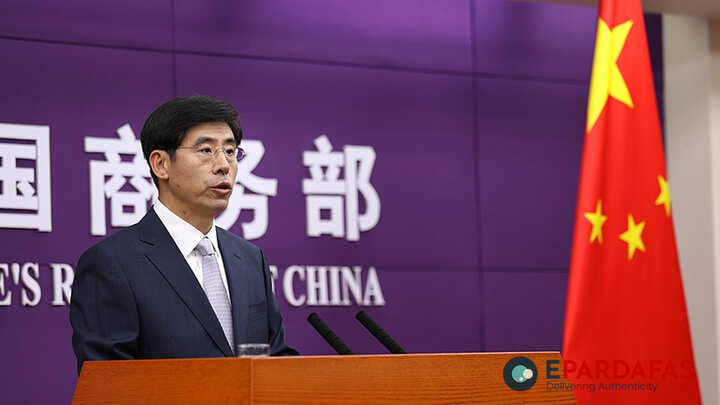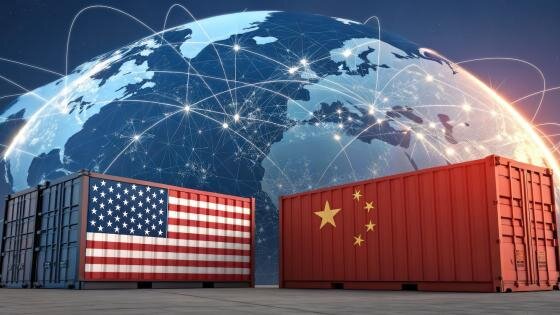Beijing – China’s call on the US on unilateral tariff elimination and resolution of trade disputes through dialogue highlights Beijing’s diplomatic philosophy, which emphasizes the cooperation of winners. This stance is in stark contrast to Washington’s focus on maintaining supremacy.
On Thursday, the Chinese Commerce Department called for the US to completely remove all unilateral tariffs imposed on Chinese exporters.
His Yadong, a provincial spokesman, said at a weekly press conference in Beijing that arbitrary US tariffs violate basic economic principles and market rules.
He said such actions sparked strong opposition both internationally and within the United States, urging American politicians to listen to the reasonable voices of the global community and their domestic stakeholders.
A spokesman for the department emphasized that negotiations with the US on tariffs must be based on mutual respect.
“China’s position is consistent and open to consultations and dialogue, but it needs to be discussed and negotiated on an equal basis based on mutual respect,” he said.

China urged the US to completely remove all unilateral tariffs imposed on exporters, stressing that true resolutions can only be achieved through equal and constructive dialogue.
Since returning to the White House in January, President Donald Trump has launched a trade war with China, imposing tariffs of up to 145% on the country’s exports. China fought back on US products with 125% tariffs.
US Treasury Secretary Scott Bescent recently said “the trade war with China is unsustainable.” US media and experts have also warned that Trump’s trade war against China will work to undermine American consumers.
Jeffrey Sachs, a well-known American economist who is director of the Center for Sustainable Development at Columbia University, told the Tehran Times in late March that the US trade war with China was “very self-defeating for the United States.”
It’s different from chalk and cheese
The US diplomatic philosophy in international relations revolves around maintaining its own domination, and often shows its preference for one-sided action. Using its substantial economic and military resources, the United States frequently overlooks international law and regulations established by global institutions, prioritizing its own interests above all else. If international standards contradict their objectives, the United States tends to circumvent multilateral frameworks such as the United Nations, opting instead for unilateral military intervention or sanctions.
China promotes diplomatic relations established on the principles of peaceful coexistence and victory cooperation
In contrast, China is actively supportive of establishing a fair and equitable international order dedicated to creating communities that envision a common future for humanity. China argues that international relations should not be ruled by a single power, but should come from collective dialogues of all countries.
It emphasizes that all countries deserve equal participation in both regional and global issues, regardless of their size, strength, or wealth. In line with this philosophy, China engages with multilateral organizations such as the United Nations, advocating peaceful resolutions through negotiations and dialogue, supporting the UN Charter and principles of international law. Within the World Trade Organization, China is promoting the discussion of multilateral trade to strengthen the liberalization of global trade. Moreover, it reflects that under the Paris Agreement on Climate Change, China is consistently respecting its commitment, working to build international consensus, and working to better adapt the global order to meet the needs of developing countries and promote shared global development.
Building on these commitments, the Belt and Road Initiative (BRI) serves as a fundamental component of China’s diplomatic strategy based on the doctrine of co-consultation, co-operative development, and mutual benefit. Its main purpose is to strengthen the connectivity of policy, infrastructure, trade, finance and cultural exchanges with partner countries, and to cultivate communities that are ultimately characterized by shared interests, collective fates, and mutual responsibility.
In short, China adheres to the independent foreign policy of peace and defends diplomatic relations based on peaceful coexistence and cooperation that is beneficial to both sides.
The Central Conference on the Central Conference on Neighborhood Countries held in Beijing from April 8th to 9th, emphasized that China supports “principles of amity, integrity, mutual benefit and inclusivity” in order to strengthen strategic trust with its neighbours and jointly build a vision of “five houses” of peace, stability, prosperity, beauty and friendship.
Working on the conference, President Xi Jinping also focuses on creating communities that share future futures with Chinese neighbours.
President XI vowed to strengthen strategic ties with neighbouring countries by “good” managing differences and strengthening supply chain ties. President XI’s recent tour of three countries to Vietnam, Malaysia and Cambodia highlights his pledge.

